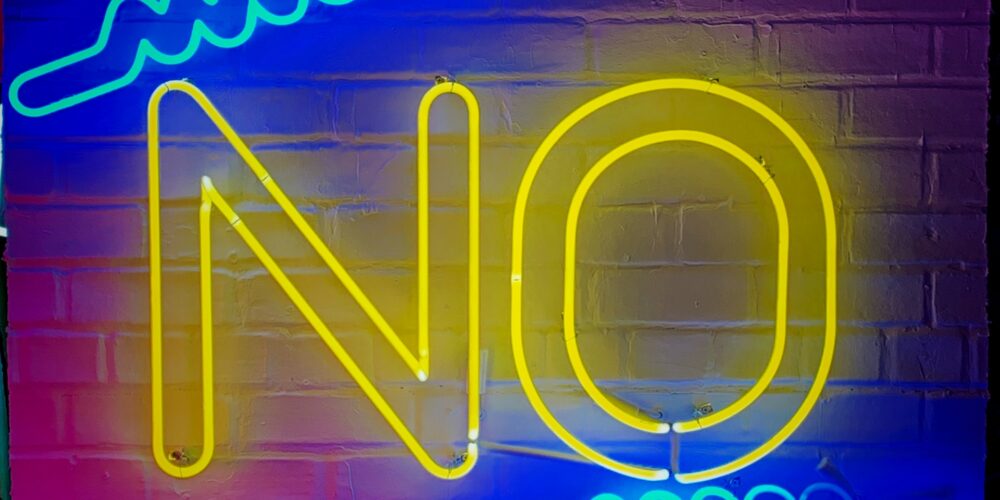What would you do if you faced this business dilemma?

Gary Vaynerchuk, serial entrepreneur and digital marketing evangelist, begins his new book, Twelve and a Half, with an interesting anecdote.
GaryVee, as he is known on social media, runs VaynerMedia, a creative agency. He tells us he once had to attend a very difficult meeting with a leading client. This stemmed from a bad mistake made by his agency: an entry-level employee had accidentally posted a tweet from the client’s Twitter account—thinking she was posting on her personal account. The tweet disparaged another agency, also working on that client’s account. To the world, it looked like the client had dissed one of its own partners publicly.
The smelly stuff had clearly hit the fan, and the client wanted consequences. During the meeting, the client asked Gary to put in proper systems and protocols to ensure such a thing could never recur. All good. But there was more. The client also wanted an example made. For the relationship to continue, VaynerMedia had to fire the individual who had posted that unfortunate tweet.
This client’s brand was big for VaynerMedia; it represented around 30 per cent of their revenue at the time.
What would you do?
When I read this, I put myself in GaryVee’s position. I, too, run a professional practice. We also have big corporate clients, some of whom can make up a good chunk of revenues in a given year. What if one of them asked me to fire an employee—or even severely discipline them—for a serious infringement?
I didn’t need to think about it. I wouldn’t do it. And neither did Gary. He was ready to lose the client if necessary. He had his reasons, recounted in the book. Let me explain mine here.
Firstly, there is the simple matter of whose decision it is. The client can make the decision to fire the agency, no problem with that. But they cannot impose an employment termination on the agency. That is a matter for the leaders of the practice—to consider the circumstances with care, and take appropriate remedial action. A client that thinks it can bully its suppliers just because of the size of its spend is not going to be great in the long term.
Secondly, this was not an act of malice by the employee. It was human error—careless and needless, no doubt—but human error nonetheless. I don’t fire people for human error, and neither should you. This principle comes from early in my career. In my first-ever job, with a prestigious consulting firm in London, I too made a careless blunder within weeks of joining, one that was likely to be very costly for my employer. I fully expected to have to resign. But my boss at the time, to my great surprise, took a different view. She told me she did not let people go for making human errors—she had made them many times herself. She would bear the consequences of my recklessness; all I had to do was learn from the experience.
I have never forgotten that. And I swore to do the same throughout my own career. That was when my interest in good and bad leadership sparked into life, and here we are.
This does not mean any of us should have lower standards of behaviour, or tolerate nonsense from employees. Not at all. In the case of my practice, we set a very high bar, and demand unusual performance from all employees and contractors. But simple human error, happening for the first time? Nah, that’s not where the story ends. What we should actually do is coach, coach, and coach some more—help the employee to understand and improve, and give them a chance to rise above their inadvertent foolishness. Serial misdemeanours, though, or toxic behaviour? Those will require a different resolution.
If we can behave in this way, we introduce the all-important factor of psychological safety into the workplace. We signal that we are fair-minded and that we have our people’s backs. That’s a huge culture-builder. Deep and prolonged employee engagement comes from a sense of belonging and kinship—but that must begin with feeling safe.
Had GaryVee fired that employee, he would have sent a very strong signal: it’s all about the money here. If you screw up, you ship out. That, unfortunately, is the de facto motto of a lot of employers out there. Not yours, I hope.
The bigger point is about bigger deals. If we are in business just to maximize our short-term personal gains, then all sorts of opportunistic, ruthless, and short-sighted behaviours will ensue. We will lower our standards, cut many corners, and act brutally whenever needed.
If, however, our lives and purpose are bigger than that, we will try to build reputable, long-lived, and much-loved institutions. That’s a completely different game. We will not do things that are expedient in the short term; we will instead do all the things that are about pride in our work, dignity in our behaviour, and patience in our rewards.
Anyone up for that?
(Sunday Nation, 27 August 2023)

Buy Sunny Bindra's new book
The X in CX
here »
Popular Posts
- My books of the yearDecember 14, 2025
- Here’s why you should become foolishNovember 30, 2025
- Confessions of an explaining personDecember 7, 2025
- How to listen, really listenNovember 16, 2025
- Is AI hiring your company into oblivion?November 23, 2025















